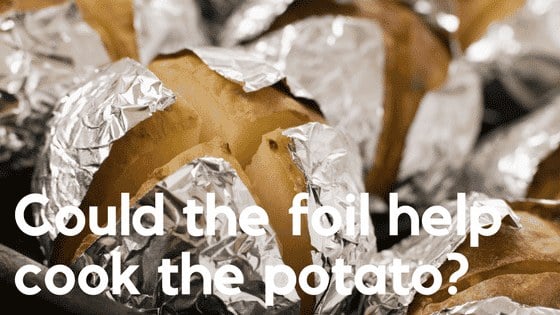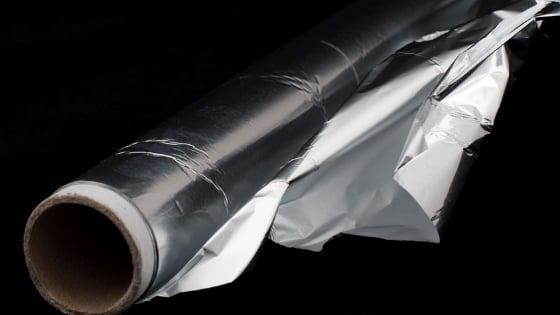
Can You Recycle Aluminium Foil To Help The Environment? 🛠️
Can You Recycle Aluminium Foil? 🛠️: One of my favourite American pronunciations of a normal word is “aluminum” for aluminium – like “a-lu-mi-num”. It is up there with the words pantsuit, sidewalk and jello sandwich for me. Fun fact: I wore a leisure suit whilst eating a peanut butter and jello hoagie on the sidewalk then filled my automobile with gas!
>Download Now: Free PDF Business Owners Guide To Commingled Recycling Bin Services
Anyways, back to the task at hand, it is always annoying when certain items cannot be easily or readily recycled. Of course, items such as cardboard and plastic bottles can be easily diverted from landfill. But, there are many items that still end up in landfill such as takeaway coffee cups (see recycling Melbourne), as covered in the ABC TV show – War On Waste.
In this blog today, we will cover the latest developments on trying to recycle aluminium foil in 2022, which indicates that we may be able to produce a form of biofuel from used aluminium foil. We will also cover how recycling aluminium can benefit the environment.
Correspondingly, we will talk about the harm of not recycling aluminium. So, bring out your notes and remember what we write down below.
Fact: aluminium is one of the most recyclable materials in the world. So, we encourage you to recycle them.
– Mr Waster
A bit about Waster: the ‘Uber of Waste’
Waster provides low-cost waste and recycling bins services to small and medium business customers throughout Sydney and all major Australian cities.
Check out our prices and arrange your services through our online waste portal today. We operate on flexible 30-day agreements. So, you never need to worry about lock-in contracts or rollover clauses again.
Can you really recycle aluminium foil? What are the latest developments?
Can recycling (such as for beer or soft drinks) is probably one of the most widely accepted forms of commercially available recycling in Australia. Indeed, aluminium is 100 per cent recyclable. But, the question “can you recycle aluminium foil?” is a very different question.
According to groovygreenliving.com:
“Aluminium cans, used for sodas and other popular beverages, are recyclable. Cans with aluminium have the highest recycling rate of any beverage container in the U.S. – much higher than glass and plastic. Recycled cans go from the recycling bin to the store shelves within 60 days. Making cans from recycled materials takes 95 per cent less energy and 95 per cent less greenhouse gas emissions than using new metal.
“Here’s the complicated part: aluminium foil is just as recyclable as aluminium cans, but some recycle programs aren’t equipped to process foil. Aluminium foil is many times covered in food scraps and most recycling facilities won’t accept food covered items. Also, smaller aluminium foil scraps can clog the recycling equipment.”

Aluminium foil is usually used for cooking, covered in food waste and produced in small amounts at a time – just enough to wrap food, etc. It regularly ends up in general waste and landfill for these reasons.
How about aluminium food wrap?
Now that we know the possibility of trying to recycle aluminium foil, let us talk about aluminium food wrap.
One of the more annoying things that get thrown in general waste bins currently is used aluminium foil wrap – the type used to wrap food. Around 20,000 tonnes of aluminium foil packaging is wasted in the UK alone each year – enough to stretch to the moon and back. Similar figures will, of course, be applicable in Australia or any other country.
The website RTE.ie tells us that, “most goes to landfill or is incinerated as it is usually contaminated by grease and oils, which can damage recycling equipment”.
We quote from the article: “Researcher Ahmed Osman has developed a method to transform dirty household foil, discarded after cooking.
“His pioneering technique involves a crystallisation method to obtain pure aluminium salt crystals from used foil. The crystals can be used in the production of alumina biofuel catalyst.
“This breakthrough is significant. Not only is the alumina purer than its commercial counterpart, but it could also reduce the amount of aluminium foil going to landfill while also sidestepping the environmental damage associated with mining bauxite.”
Clearly, there are huge advantages of recycling aluminium for the environment. And of course, projects like this should certainly be welcomed.
Really great to hear about these ongoing projects. It reaffirms Waster’s belief that technology and changing behaviours can really make an environmental difference.

The real harm in not trying to recycle aluminium foil (or aluminium, in general)
We highly encourage you to recycle aluminium foil when and if you can. In fact, we encourage you to recycle aluminium, in general. Because if you don’t, certain environmental problems will arise.
First and foremost, you can save up on raw aluminium when you recycle the used ones. Overharvesting is a real problem that needs to be solved. Although we can say that aluminium is abundant now, can we really say that in the next 15 to 20 years?
Second, of course, is energy conservation. A known benefit of recycling is saving up on energy, too – not just cutting the utilisation of natural resources. There lies a lot of connected problems if no recycling occurs. Below, we state the harms of not recycling aluminium foil – or just aluminium, in general.
A case of energy consumption and global warming
According to the Australian government’s Productivity Commission, aluminium smelters (businesses that extract metal from ores), all located in eastern Australia, consume approximately 15-16 per cent of Australia’s electricity production. That means aluminium production costs lots of energy and resources, especially with the continuing growth of bauxite, alumina and aluminium here in Australia.
Moreover, aluminium production greatly contributes to global warming. The aluminium smelting industry in Australia contributes around 16 per cent of greenhouse gas emissions coming from the electricity sector and 6.5 per cent of Australia’s total emissions.
Aluminium smelting produces carbon dioxide, one of the most potent greenhouse gases. In addition, smelting aluminium exudes sulphur oxide and nitrogen oxide, chiefly responsible for creating smog and acid rain.
From the statements above, we can make a completely obvious conclusion. We can make a conclusion that recycling is that much better than producing aluminium from raw bauxite ores. It saves energy; recycling aluminium, as stated above, saves up 90 to 95 per cent of the energy needed to make new aluminium.
To emphasise, you can make 20 recycled aluminium cans with the energy it takes to make just one new aluminium can! That is quite a crazy fact if you ask us. Tossing it in landfill beats the purpose, so make sure to recycle aluminium.
A better alternative to plastic
At Waster, we favour avoiding using plastic wrap (or plastic, generally) whenever possible. As aluminium foil is a replacement for plastic shrink wrap, we welcome it.

Aluminium foil will, of course, rust away if left long enough without us trying to recycle it. Hence, it is better for the environment than plastic that may live forever.
Of course, the statement “can you recycle aluminium foil?” is a great question to ask. And, as we invest more as a society in avoiding plastic and using plastic alternatives, we will see more innovative solutions as above.
See our blog on career opportunities as an environmental consultant among other interesting discussions.
6 Comments
Leave a Reply Cancel reply

Product categories
Most Popular Posts
-
Commercial Waste Management Services: Reduce Waste Collection Costs! 🚍
-
Medical Waste Disposal: Everything You Need To Find Out In 2024! 💉
-
Rubbish Removal Sydney 2024: Better Bin Collections For Business ✅
-
Clinical Waste Disposal 2024: What To Know About Business Clinical Waste ⚕️
-
Secure Document Destruction 2024: All About Security Bins Shredding 🔒
-
Free Cardboard Recycling 2024: Can I Get Free Cardboard Collection? 📦
-
Confidential Paper Disposal Bins 2024: What You Need To Know About Shredding! 🔒
-
Recycling Bins Australia 2024: Recycling Can Boost Your Profits! ♲
-
Commercial Wheelie Bin Collection: What Businesses Need To Know In 2024 🗑️
-
Commingled Recycling 2024: Why Commingled Bin Is Key To Recycling 🍾















Hi,
Are you able to point me in the right direction for recycling of medication blister packs.?
Some time ago a friend circulated the address of someone who had developed a method of recycling blister packs. Now, neither of us can find the address. I have been saving these blister packs along with others friends for a long time and now we have a lot of them.
I believe that these products also must be a problem for waste disposal with most if not all being sent to landfill.
Any suggestions?
Regards
Jim
Hi Jim – I think Redcycle may be your best option for this – i.e. assuming the blister packs are soft etc?
No! Redcycle specifically state that “Blister packs, tablets and capsule packaging” are not accepted for their purposes – see https://redcycle.net.au/what-to-redcycle/
Thanks for update!
Google “Banish” . They will accept blister packs for recycling but you have to post them when you have a pile and pay postage.. For this you receive a voucher for their shop.
Thanks Peter – great find!